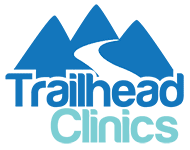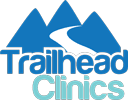Colorado routinely ranks among the healthiest states, and the Western Slope’s mountains, trails, and sunshine make it easy to be active. Still, even in a fit community, everyone benefits from a trusted primary care provider (PCP). Kids need well-child visits and vaccines. Teens and young adults need guidance on sleep, stress, and sports injuries. Adults juggle prevention, hormones, and work-life demands. Older adults manage medications, bone health, and heart risk. Primary care is the thread that connects all these seasons of life—coordinating care, catching issues early, and helping you live well in Western Colorado.
Grand Junction offers several options for accessing primary care. Below is a clear breakdown of the three most common approaches—insurance-based care, urgent care, and direct primary care—so you can choose the fit that matches your health needs, budget, and expectations for the patient experience. Let’s get started.
Insurance-Based Primary Care
This is the traditional model most people know. You select an in-network clinic, pay your copay at the visit, and get your insurance billed for the remainder. For many people, this works fine. If you have employer-sponsored insurance and prefer to keep all services in-network, then the standard model makes sense.
Insurance-based clinics handle annual physicals, chronic disease management, minor procedures, and referrals to specialists.
The strengths of this option for primary care in Grand Junction include broad familiarity, the ability to bundle in preventive screenings your plan covers, and access to large hospital systems. Limitations often include shorter appointments (because clinics must see high volumes to keep up with insurance administrative requirements), variable wait times for acute visits, and surprise bills if something gets coded differently than expected. If you like the convenience of staying “inside the system,” this model may be a good match—just be sure to ask about appointment length, same-day/next-day access, and how the clinic supports messaging or care between visits.
Urgent Care Centers
Urgent care is designed for same-day, non-life-threatening issues—sprains, cuts, infections, rashes, or sudden symptoms when your PCP can’t see you quickly. In Grand Junction, urgent care clinics offer extended hours and fast access to basic labs and X-rays. They’re a great safety net for travel mishaps, weekend problems, or times when you don’t yet have a PCP.
That said, urgent care isn’t a substitute for continuous primary care in Grand Junction. They typically don’t manage complex histories, long-term medications, or prevention plans, and follow-up can be limited. If you choose urgent care, make sure results and notes get back to your PCP so nothing falls through the cracks. Think of urgent care as a helpful bridge, not the whole road.
Direct Primary Care (DPC)
Direct primary care is a membership-based model that’s become increasingly popular on the Western Slope. Instead of billing insurance for office visits, you pay a predictable monthly fee to the clinic. That membership covers most primary care services, and the practice keeps panel sizes smaller so providers can spend more time with each patient. If you’ve ever wished your doctor’s office felt more like a relationship than a number, DPC will likely connect with you.
Common DPC benefits include longer visits, same-day or next-day appointments for urgent needs, direct messaging with your provider, transparent pricing for labs and imaging, and help navigating specialists when needed. Because the clinic isn’t chasing insurance codes, the team can focus on prevention, coaching, and personalized plans that fit your life in Grand Junction.
How the Trailhead DPC Works
Most direct primary care clinics use a membership model. As a primary care option in Grand Junction, Trailhead DPC is no exception. Here’s how it works.
DPC replaces copays and per-visit billing with a flat monthly fee. While every clinic sets its own rates, typical DPC pricing in Colorado often ranges from about $75–$125 per month for most adults, with discounted pricing for children and families. Your membership covers most primary care visits, messaging, and many in-office procedures. There are no surprise facility fees. Many members use HSA/FSA funds when appropriate; if you plan to use those accounts, ask the team how they can work with your setup. If you carry insurance, you can still use it for outside services such as specialist visits, imaging, prescriptions at retail pharmacies, or hospital care. The membership is about everything that happens in the primary care clinic—faster access, more time, and clear pricing.
Because membership separates clinic revenue from insurance billing, Trailhead also offers transparent cash pricing on common labs and negotiated rates for imaging. If you prefer to run labs through insurance, the team can do that as well—what matters is that you have options for primary care in Grand Junction and know the costs ahead of time.
Beyond standard primary care, DPC clinics commonly include school and sports physicals, simple dermatology (cryotherapy for warts, skin tag removal), joint injections, women’s and men’s health visits, basic mental health support, and chronic disease management with lifestyle coaching. If something is outside the clinic’s scope, Trailhead will coordinate referrals and share notes so your specialists stay in the loop.
Who Is DPC a Good Fit For?
If you value access, continuity, and predictable costs, DPC shines. It’s especially helpful for families who want same-day pediatric access, adults managing ongoing conditions who need more time and coaching, self-employed residents without rich insurance benefits, and Medicare-aged patients who want a relationship-driven home base. If you have high-deductible insurance, DPC can complement your plan by handling most everyday needs for a fraction of what you’d pay before meeting your deductible.
However, if your employer plan has very low copays and you rarely need care, or if you prefer all services to be routed through a single insurance network, a traditional clinic could suit you. Some people also choose an insurance-based clinic if they expect frequent specialist or hospital care and want everything on the same statements. The key is to compare actual access—how fast you can be seen, visit length, and communication between visits—alongside dollars and cents.
Trailhead Clinics Offers an Excellent Primary Care Option in Grand Junction
Your options for primary care in Grand Junction aren’t either/or—you can mix and match. Many residents maintain catastrophic or high-deductible coverage for hospital events and join a DPC practice to manage day-to-day health care affordably, and still use urgent care when it’s truly the most convenient choice. The right answer is the model that gives you accessible, attentive care at a price that makes sense for your household.
If the Trailhead DPC approach sounds like the kind of relationship you want with your doctor, getting started is simple. Just click this link to learn more. Membership enrollment is straightforward, and our team will explain exactly what’s included; how to handle labs, imaging, prescriptions; and how your insurance (if you carry it) fits with membership.
Have questions about your options for primary care in Grand Junction? Talk with our friendly staff. We’re happy to compare models with you, walk through real-world examples for your situation, and help you choose a primary care plan that keeps you and your family healthy on the Western Slope.
For more primary care information in Grand Junction, check out our blog post “What to Look for When Choosing a Primary Care Physician.”


